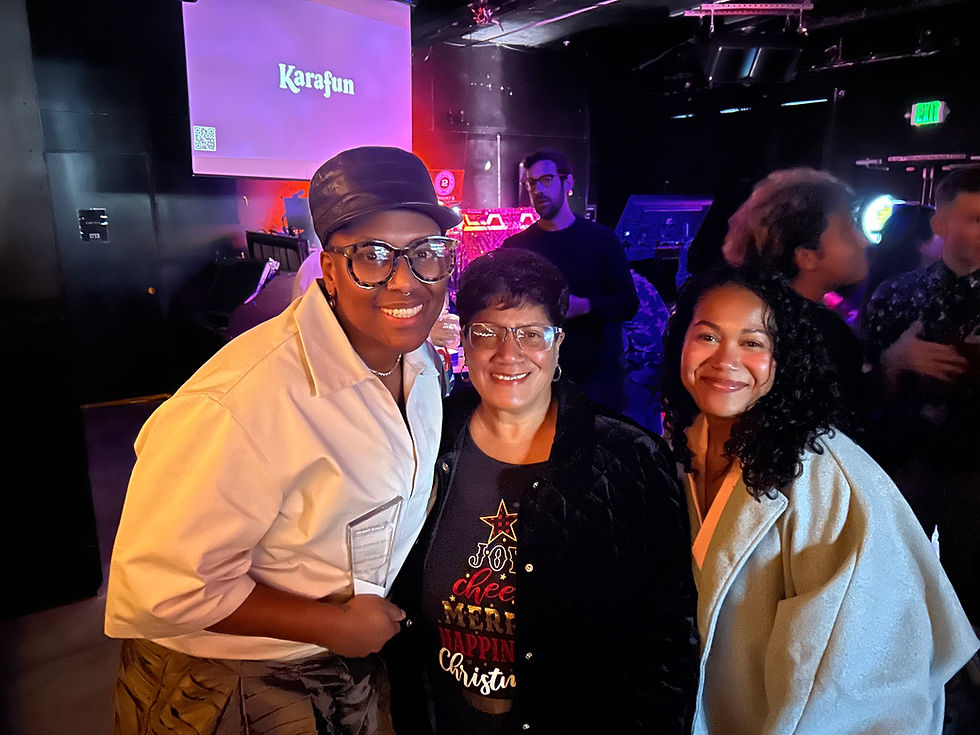Overcoming Challenges: A Look into Culturally Affirming Therapy for Black Youth
- May 30, 2023
- 4 min read
Updated: May 8, 2025

When Sam first came to HCN, they grappled with challenges such as intersectional identity, acceptance from family members and other adults, gender, sexual orientation, and race. During this time, they also struggled to find approval from family and everyday surroundings. They did not attend school regularly, further heightened by the global pandemic. As a result of the pandemic, Sam’s participation further decreased because of a loss of drive and motivation. They were approaching their senior year in high school and could not graduate because of credits and attendance. They expressed their frustration and stated they wanted to be done with high school all together.
The Ma'at Program therapist assigned to Sam’s case further explained that these challenges created significant emotional and mental distress for the teen.
"They were approaching their senior year of school, and essentially they could not graduate with their graduating class, and would have to do an additional year. Sam had a severe lack of motivation, lack of consistency in schedule, lack of all things that are normal and productive for teens."
To initiate the healing process and establish a stronger relationship with Sam, the HCN clinician introduced talk therapy as the first form of treatment. Due to their developmental delays, the clinician took an intentional approach to structure the therapy sessions, working within the realm of their disability and curating conversations at a level that they could comprehend. The goal was to help Sam have 'aha' moments and build self-esteem and confidence through early wins, ultimately leading to a better relationship with themselves.
Additionally, they were engaged in Cognitive Behavioral Therapy (CBT) to link actions with feelings and behaviors. This structured and goal-oriented approach to psychotherapy aimed to change negative thought patterns and behaviors, promote better emotional regulation and coping skills, and improve overall mental health. Through CBT & Ma’at's Afri-centric approach to mental health, they were encouraged to identify and challenge unhelpful thoughts and beliefs that contributed to their difficulties.
The Ma'at Program at HCN offers a unique approach of pairing Black patients with clinicians that look like them and who share similar life experiences to address the complex and intersecting factors of race and gender that influence the experiences of the Black community. These therapeutic methods have helped individuals like Sam overcome challenges and achieve meaningful and lasting change.
One of the Ma'at therapist's empowering questions to Sam was, "How do you maintain who you are in a world that is not accepting of you?" It helped Sam gain a stronger sense of self and pride in their uniqueness while being validated by the clinician. They also showed a strong preference for conversation around anime that connected both the patient and the clinician by a shared interest.
After Sam's time with me in the Ma'at Program, they started to attend school and, at times, attended school just to see their therapist," Said the clinician working with Sam. "Sam went from one day a week to attending school multiple days a week, if not the full week at times. "They are currently making A's and B's in classes." The positive changes didn’t stop there.
Sam is now engaging in conversations about jobs and colleges, which starkly contrasts their lack of motivation and engagement in school at the beginning of their treatment.
According to Sam’s clinician, "Sam and I now talk about what life will be like after high school before Sam had no motivation to attend a school or think about the future. These improvements are a testament to the Ma'at Program and Black therapists who can identify therapeutic solutions and impact a young person's life. By providing a safe and supportive space, HCN was able to help Sam overcome significant obstacles and start to envision a brighter future for themselves.
The Ma'at Program at HCN offers a unique approach of pairing Black patients with clinicians that look like them and who share similar life experiences to address the complex and intersecting factors of race and gender that influence the experiences of the Black community. These therapeutic methods have helped individuals like Sam overcome challenges and achieve meaningful and lasting change.
Sam's story Identifies a unique challenge of identifying a positive sense of self in a society that constantly tells us we are not enough. Culturally affirming therapy is vital in providing effective and equitable mental health care for individuals from diverse communities. It recognizes and respects clients' unique experiences, values, and beliefs and integrates them into the therapeutic process. By incorporating affirming therapy, therapists can help clients feel understood, validated, and empowered, leading to better mental health outcomes.
At HCN, we are dedicated to providing culturally affirming therapy for all people with an emphasis on Black and African American individuals. Mental health care is a human right, and we strive to ensure everyone can access the care they need. However, we need help to do this critical work. We rely on the support of donors to continue providing affordable and accessible mental health services to those who need them most. Please consider donating today to support our mission and help us continue to impact the lives of those we serve positively.


